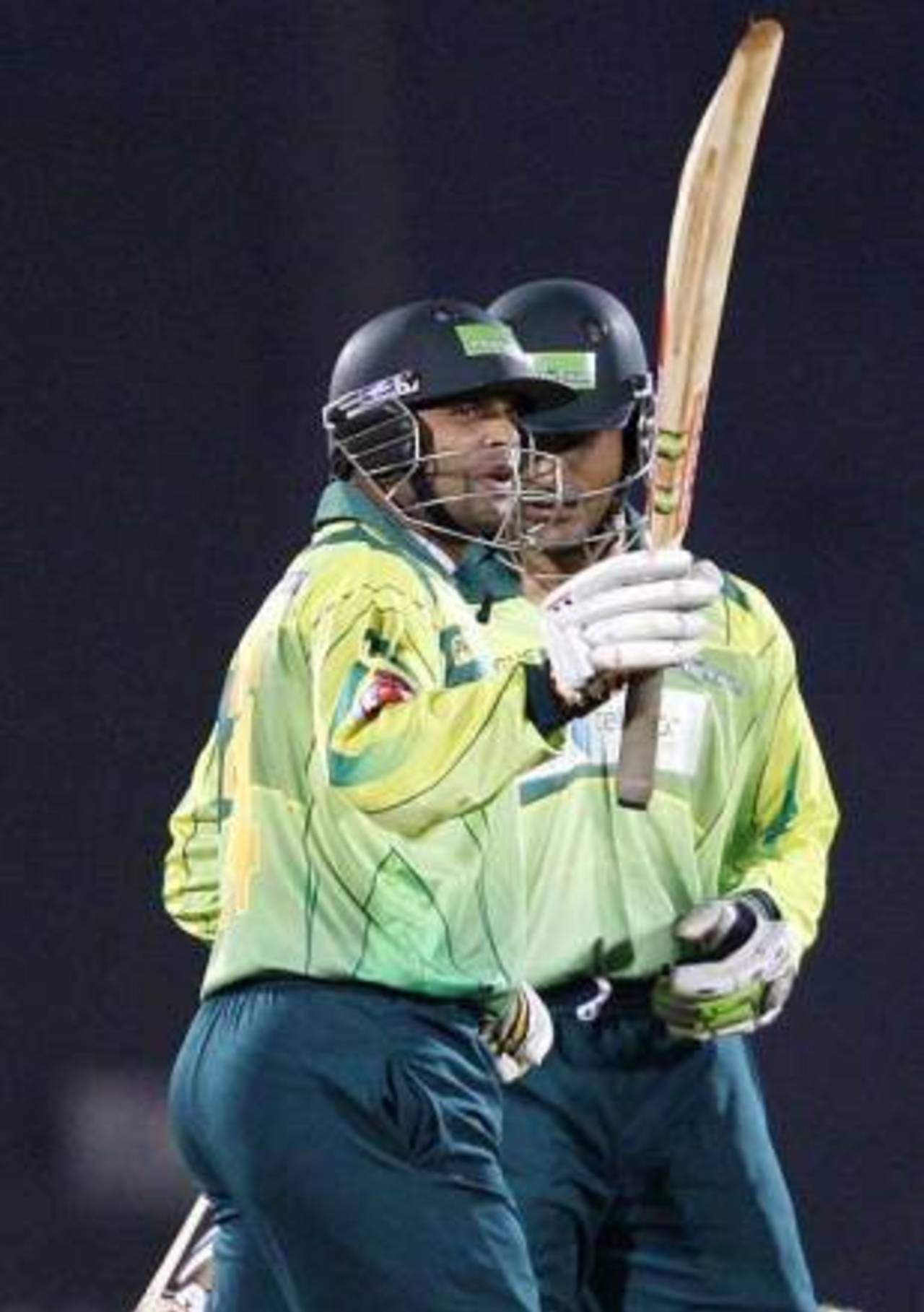Following a dramatic flip-flop by the Pakistan Cricket Board over
picking
three ICL players in its list of probables for the ICC World Twenty20, a top PCB official told Cricinfo that administrators are considering a "cooling period" ranging between six to 12 months for players who wish to return to national teams from the unauthorised league.
Salim Altaf, PCB's chief operating officer, said that such a cooling period would be on the lines of the ban that was imposed on cricketers who went on rebel tours to South Africa during the Apartheid era. "Of course, the ICC's executive board (it meets in Dubai on April 17-18) will have to take a final decision," he said.
"If you play unauthorised cricket, and then you rescind the contract and want to play for your national side, there may be a recommendation that there should be a cooling period," Altaf said. "It could be six months, could be 12 months. If you remember the days when people were going to play in South Africa, there used to be an automatic ban for two years on anybody who appeared there. So there has been some discussion on having a resolution to have some kind of a cooling period like that."
On Monday, the PCB had named three ICL players - Abdul Razzaq, Imran Nazir and Naved-ul Hasan - in its list of 30 probables, only to
replace them the day after. Altaf said Pakistan's national selectors were unaware they needed to get a clearance from the ICC before announcing the team. "I think initially they thought that they can include these players, but subsequently, they were told that we need a prior clearance from the ICC," he said.
Asked whether these three players had cut all ties with the ICL, Altaf said that he has written to Kapil Dev, the chairman of the ICL's board, seeking clarifications on their player contracts. "So far Kapil Dev has not replied," Altaf said.
When contacted, Kapil Dev said that he is yet to discuss the matter with the ICL management, but the response of Himanshu Mody, the league's business head, highlighted the PCB's predicament. "We have not received any letter from the PCB," Mody told Cricinfo. "I can confirm that the three ICL players who were named in the probables list are still on contract with us. However, we have no problems with them playing for the national side and can issue any letter that is needed for them to get back into the Pakistan team."
Altaf also admitted that the current ICC rules that govern official and unofficial cricket had some grey areas, and said that a clear picture would emerge when new, stricter laws on the matter come into force from June 1. But the problem for various national boards like the PCB, he said, was that the new rules could not be applied in a retrospective manner.
"If you have a look at the new ICC resolution No. 22 (on official and unofficial cricket), which will be applicable from June 1, that's a very tight resolution," he said. "It tightens up everything. But you cannot penalise people on that resolution retroactively. Any unauthorised cricket played before that comes under a different ruling but these are grey areas."
According to the ICC's current laws, organisers of unauthorised leagues have the option of approaching the ICC directly for recognition. But apparently, the new rules specify that only the respective home boards - the BCCI, in the case of ICL - can take a decision on any such request. It's understood that the ICC will henceforth only consider applications from organisers of "unapproved forms of cricket", which fall outside the 50-overs, Twenty20 and Test formats, such as the Hong Kong Sixes tournament.
The PCB has found itself in a tight corner on the ICL issue since February when the Sindh High Court
allowed players
associated with the ICL to play in domestic cricket, overturning a BCCI-led initiative to bar cricketers associated with the private league from any official contact in any ICC member country.
Ajay Shankar is deputy editor of Cricinfo
